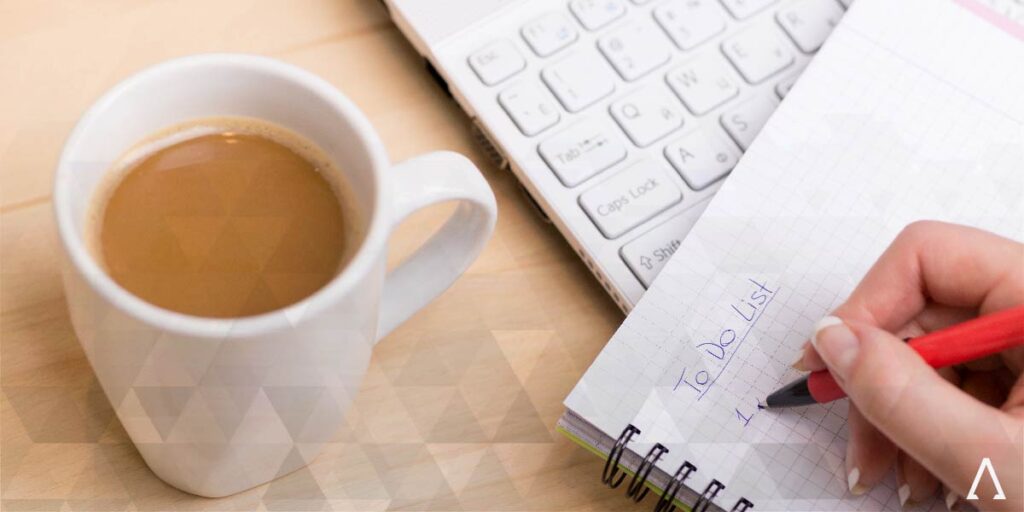Addiction is many things, and one of them is a habit. Often, drinking or using becomes the most predictable thing about your day. When you’re new to recovery, you need to replace the time you spent obtaining, using, and recovering from substances with new routines. Especially in early recovery, structure makes it easier to avoid triggers.
You don’t have to transition from the intense ups and downs of addiction into a boring life where everything is the same each day; recovery is exciting in its own way. But it’s a good idea to have a few structures in place to keep you grounded.
A great place to start is to create either a morning or an evening routine (or both!). A morning routine sets you up for the day; in recovery, it can involve making plans to avoid triggers or protect your mental health.
Meditating at a certain time each morning means you’ll enter the day with a level of calm, even if it winds up being a challenging day. Set aside time for yourself in the morning to do whatever helps you ease into the day—read, eat a healthy breakfast, perhaps even zone out. Ironically, structure can mean planned unstructured time.
Evenings are a good time to work on basic self-care. Many people have a particularly hard time avoiding substances at night, especially in early recovery. It’s important to keep your evenings structured until you feel less vulnerable to relapse. You might cook a healthy meal (or meals for the rest of the week).
A before-bed routine allows you to reflect on the day and set yourself up for better sleep. Many people with addictions struggle with sleep; they may use substances to try to get to bed, but those same substances affect their sleep quality. They may stay up late and sleep at odd hours.
Recovery is a chance to have a consistent bedtime routine. Journaling before bed can help you reflect on your day, and it keeps you away from screens at night. Meditating before bed can also improve sleep quality.
An exercise routine is another way to create structure. According to the Mayo Clinic, 3-5 days a week is a good goal because it can significantly improve symptoms of anxiety and depression. Decide whether mornings or evenings (or, if your schedule allows, afternoons) work best for you. It helps to get very specific; plan what days and times you’ll exercise, and what you’ll do for your workout. If you have particular times in mind, rather than a vague idea of “I’m going to exercise,” you’re more likely to do it.
The word “routine” has roots in the word “route.” Routine doesn’t have to be unexciting—it can be a route to growth, self-discovery, and better mental health.
If you are struggling with a substance use or mental health disorder, there is hope. TruHealing Centers offers high-quality treatment for addiction and mental health disorders in facilities across the country. Our staff—many of whom are in recovery themselves—will help you create recovery routines so that you can build your best life in long-term sobriety. Call an admissions specialist at 410-593-0005.








